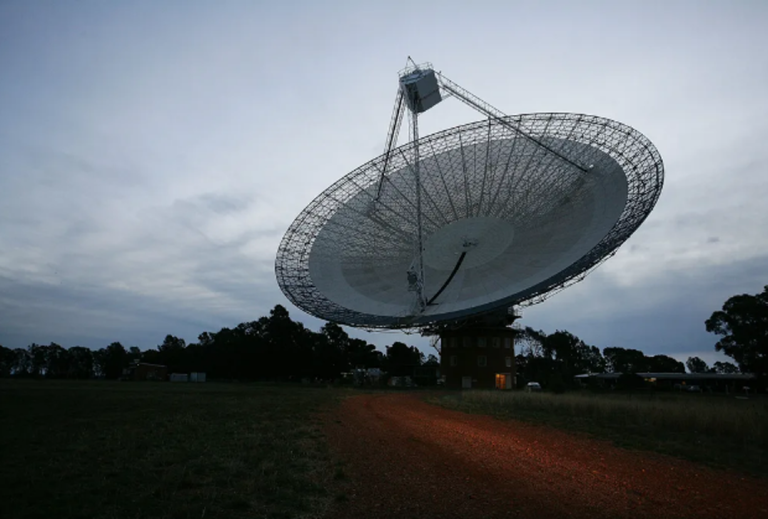12 Theories on Why Aliens Are Still Missing
Despite the countless planets across the universe that could harbor life, we still have no concrete evidence of extraterrestrial civilizations. This mysterious silence, known as the Fermi Paradox, has led scientists to propose various theories — from aliens hiding in underground oceans to the possibility that they’ve been destroyed by climate change or their own technology. The absence of aliens forces us to question the conditions needed for life and intelligence to thrive.
Summary
- Aliens might exist in parallel universes that are more conducive to life than ours.
- Extraterrestrial life could survive in space without the need for planets.
- Many alien species could be hidden in underground oceans on icy moons.
- Super-Earths might imprison alien species with high gravity, making space exploration impossible.
- Advanced civilizations might have transitioned into robotic societies that we’re not equipped to detect.
- Humans may have already encountered aliens but failed to recognize them due to cognitive biases.
- Expansive civilizations might inadvertently destroy others during their growth.
- Advanced alien societies may have collapsed due to climate change or resource depletion.
- Aliens could be purposefully avoiding us to minimize interaction with potentially hostile species.
- The vast distances of space might make communication and travel impractical for even advanced beings.
- Intelligent alien species might avoid sending detectable signals to ensure survival.
- We could be among the earliest civilizations in the universe.

The Mystery of Missing Aliens
The question “Where is everybody?” was asked by physicist Enrico Fermi. This question captures the puzzling silence of the universe. There are billions of planets that could support life. But we haven’t found any evidence of alien civilizations. Here are twelve main ideas that try to explain why we haven’t found aliens yet.
We’re Looking in the Wrong Universe
One theory suggests that our universe may not be the most conducive to life. Researchers studying the multiverse hypothesis propose that certain universes might have better conditions for star and planet formation. In our universe, only 23% of ordinary matter transforms into stars, which might limit the chances of alien life emerging.
Multiverse theory explained in this study.
Table 1: Star Formation Across Universes
| Universe Type | Dark Energy Density | Star Formation Rate |
|---|---|---|
| Hypothetical Optimized | Moderate | 27% of matter |
| Our Universe | Low | 23% of matter |
Perhaps aliens are thriving in alternate realities, leaving our universe comparatively barren.
Aliens Don’t Live on Planets
Not all life needs a planetary home. A study published in Astrobiology theorizes that advanced civilizations could live in free-floating colonies in space. These structures, encased in protective shells, could use the greenhouse effect to maintain livable conditions without a planetary anchor.
This possibility expands our search criteria for alien life, urging us to explore space’s voids rather than focusing solely on planets.
Hidden in Underground Oceans
Subsurface oceans exist beneath the icy crusts of moons like Europa and Enceladus. These environments, protected from surface hazards like radiation and asteroid impacts, could harbor life.
NASA’s upcoming Europa Clipper mission aims to explore this potential by analyzing water plumes erupting from Europa’s surface. The findings could redefine how and where we search for extraterrestrial life.
Imprisoned on Super-Earths
Super-Earths, with masses up to 10 times that of Earth, present unique challenges. The immense gravitational pull on these planets would make space travel nearly impossible for their inhabitants.
Michael Hippke, an astrophysicist, argues that such civilizations might remain forever confined to their planets, unable to reach out to the stars.
Learn more about this here.
We’re Searching for the Wrong Signals
“Any civilization that invents radio will likely invent machines to surpass itself,” said futurist Seth Shostak. Advanced alien societies may have transitioned entirely into robotic beings, making them harder to detect with current technology.
We may need to adjust our strategies to find signs of machine intelligence rather than biological life.
Humans Are Distracted
Our cognitive biases and limited imagination could prevent us from recognizing alien life. A study demonstrated that participants often overlooked unusual objects when searching for specific ones. If aliens are fundamentally different from us, we might fail to notice their presence entirely.
Civilizational Growth Destroys Others
Alexander Berezin’s controversial theory suggests that any interstellar civilization might inadvertently destroy lesser species as it expands. This destruction could happen unintentionally, similar to humans clearing forests for development without considering the insects and animals displaced.
Climate Change Kills Advanced Societies
As civilizations grow and exploit their planet’s resources, they may trigger catastrophic climate changes. Adam Frank’s simulations reveal that most advanced societies collapse under the weight of their own success unless they adopt sustainable practices early.
More details on sustainability can be found here.
Table 2: Outcomes of Civilizations in Climate Models
| Scenario | Outcome | Survival Rate |
|---|---|---|
| Unchecked Resource Use | Planetary Collapse | 25% |
| Early Sustainability | Stable, Long-Term Survival | 75% |
This raises the possibility that alien civilizations have already perished due to their inability to adapt.
Aliens Avoid Contact
Advanced civilizations might intentionally avoid us. The Zoo Hypothesis suggests that Earth could be part of a cosmic experiment, with aliens observing us from afar without interference. This could explain the lack of direct communication or evidence.
The Universe Is Too Vast
The immense distances between stars and galaxies create significant barriers to communication and travel. Even with advanced technology, it might take thousands of years for messages to traverse the cosmos, making real-time interaction impractical.
Intelligent Silence
Sending out signals could expose alien civilizations to potential threats. By remaining silent, they might be protecting themselves from hostile species. This theory emphasizes the importance of caution when broadcasting Earth’s presence into space.
We’re Among the First
If intelligent life is exceptionally rare, humanity might be one of the earliest civilizations to develop. This would place the responsibility of shaping interstellar exploration and contact squarely on our shoulders.
Facts
- The term Fermi Paradox originates from a casual lunch discussion among scientists in 1950.
- Radio telescopes like the Arecibo Observatory have been used for decades to search for extraterrestrial signals.
- The Voyager spacecraft carries a Golden Record, a time capsule intended for any aliens that might find it.
References
- Multiverse and Life Formation Potential
- Aliens Stuck on Super-Earths
- Climate Change and Advanced Civilizations


